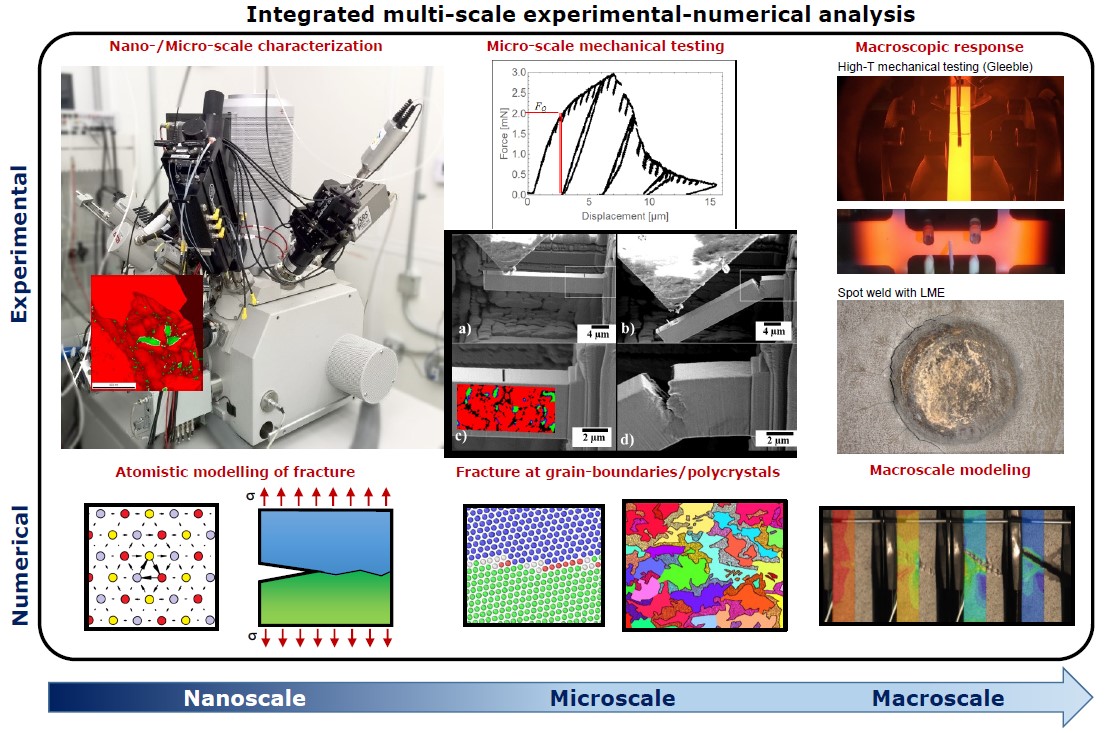NWO grant for Francesco Maresca in Open Technology Programme
Dr. Francesco Maresca of the Engineering and Technology Institute Groningen (ENTEG) has been awarded a grant within the NWO Open Technology Programme (OTP). The grant of EUR 921,000 is for his project ‘Multi-scale assessment of liquid metal embrittlement at steel-zinc interfaces (MUSCLES). Maresca’s MUSCLES project is one of the six awarded projects.
The consortium that is led by Francesco Maresca also consists of researchers from the Technical University Delft (Dr. Marcel Hermans, Dr. Vera Popovich, Prof. Leo Kestens and Prof. Roumen Petrov) and is - beside the NWO grant - financially supported by M2I and Tata Steel Nederland Technology B.V. The grant will be used for 5-year research to develop a synergistic, multi-scale theoretical/experimental approach to unravel the physical origin of liquid metal embrittlement, from the atomistic and microscale levels to the macroscopic materials behaviour.
Research
Liquid Metal Embrittlement (LME) is a major obstacle to the application of the new generation advanced high strength steels (AHSS). LME consists in the loss of ductility of the steel substrate in contact with the anti-corrosion zinc-based coatings, molten upon welding operations. The fundamental origin of the mechanisms controlling LME is not understood. The interaction of solutes with cracks in the material, the microstructure and the local stress state can all influence the LME phenomenon, which thus appears to be an intrinsically multi-scale process. Therefore, a novel synergistic multi-scale experimental-theoretical approach will be developed combining state-of-the art simulation techniques with cutting-edge experimental testing from atomistic up to the macroscale, to reveal the necessary insight into the LME phenomenon that is required to guide the design of LME-free AHSS.
In this project, the Maresca group will focus on the investigation of the multi-scale modelling of plasticity and fracture in steels as a function of chemistry by the use of Molecular Dynamics modelling based on state-of-the-art Density-Functional-Theory-accurate interatomic potentials.
NWO Open Technology Programme
The Open Technology Programme is open to excellent research aimed at the possible implementation of the results. The programme offers companies and other organizations an easily accessible way of becoming involved in scientific research that leads to usable knowledge.

More news
-
17 February 2026
The long search for new physics
-
10 February 2026
Why only a small number of planets are suitable for life
